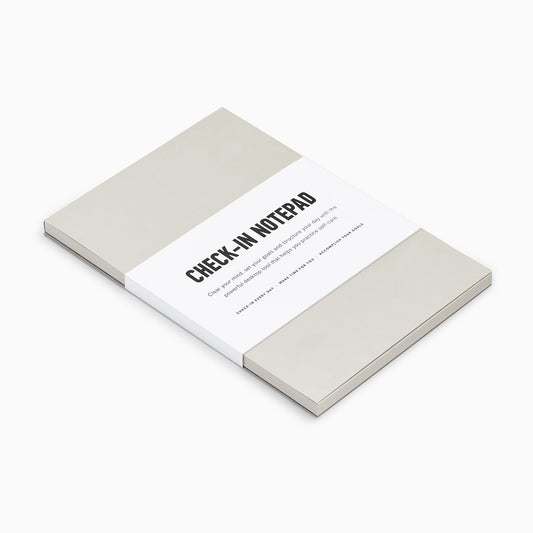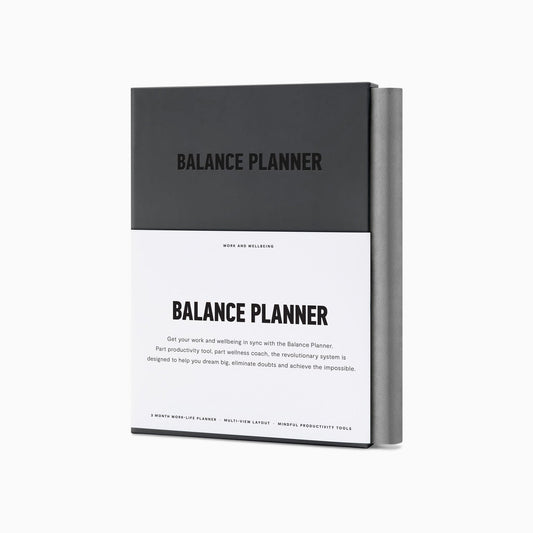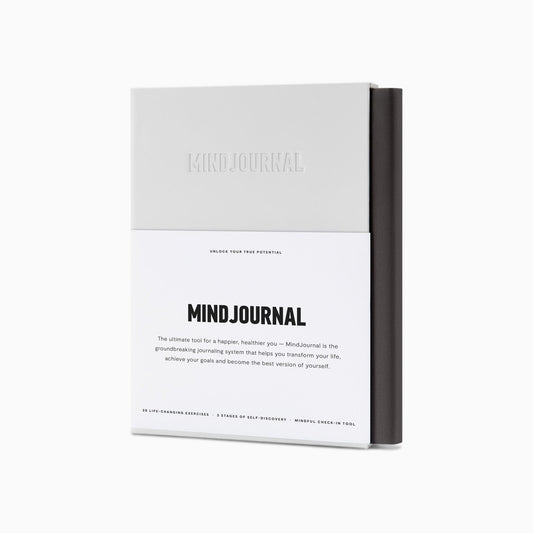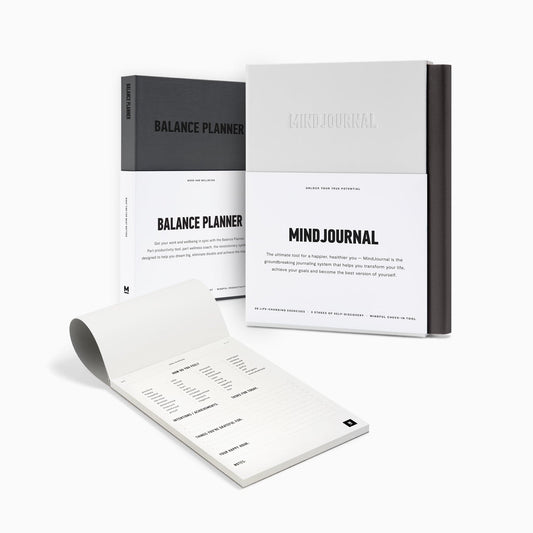Start your journey
Browse our bestsellers for a better you.
Frequently added:




by MindJournal - 9 min read

Habits get a bad rap sometimes.
That's because we're often so focused on the negative ones that we forget to show our good habits some love too.
But whether it's regularly tracking your expenses or routinely getting some exercise, there are countless benefits to "making a thing" of these positive behaviours.
From busy freelancers and business owners to just about anyone looking to make constructive changes in their lives, habit tracking can help.
This tried-and-tested tool can turn any run of productive practices into an unstoppable streak.
Don't take our word for it, though. There's science in why it works.
It can be easy to pick up unhealthy or unhelpful habits over time. Don't worry. It happens to the best of us.
Every time we scroll through social, smoke or snack when we're feeling a certain way, three culprits are usually involved: triggers, behaviours and rewards. Essentially, whenever we're triggered and look to soothe ourselves, e.g. if we're stressed or distracted, we reinforce this learnt behaviour with a reward.
Do this enough times, and it can start to make this subconscious action automatic - and that's how 'bad' or unhealthy habits are formed.
The good thing is you can use this reward system to encourage healthy habits, too.
But how?
Our brains are programmed to chase that dopamine "high". But this rush doesn't have to come from an unhealthy reward. Instead, our minds can build a connection between positive behaviour, e.g. picking a home cooked meal over a takeaway (and that good feeling you get after).
But feeling good is just one reason habit tracking is a win-win.
Habit tracking is so useful because it helps us understand our behaviours better. And getting under the bonnet of why we act in a certain way can help us identify everyday patterns in our actions.
By understanding ourselves, we can set positive and realistic goals and hold ourselves accountable for our actions. This makes it far easier to track progress and reward ourselves for our positive changes - reinforcing the good work.
Sound good so far? Great. Now onto the specifics.
Simply put, the best way to successfully track your habits is to focus on the good stuff. And what's the best way to do that? It's easy: start small.
Habit stacking is a technique where you "stack" a new habit onto something you already do regularly. The theory is that this will be easier to remember to build the new habit into your daily routine.
For example, if you want to start meditating for five minutes every day before work, try "stacking" this habit after you brush your teeth in the morning. This triggers the action, and makes it easier to slip into your morning routine - without changing your entire schedule.
These small changes can lead to significant transformations over time. For example, doing a single push-up or reading one page of a book can build into a routine that leads to more meaningful change.
That’s why the habit tracker inside our Balance Planner helps you identify the positive behaviours you want in your day-to-day. It helps you build that streak of small successes that leads to powerful long-term change.
Balance Planner
£
35.00
Sale price
£
24.50
GBP

First things first, don't be too hard on yourself. We're all human - it happens.
The thing is: streaks can be broken, but they can be beaten, too. It's all about resetting the routine that was working for you in the first place - and then going again.
"You might think the main thing helping you keep up your good behaviours is wanting to close your rings on your Apple watch. Or, you want to score in the top 10 percent (sic) of students on your language learning app to get a badge," says Alice Boyes, PhD of Psychology Today.
Although it is helpful to "gamify" your new habit, Boyes argues that looking beyond the streak is important when starting over.
"Think about your routines for cueing your habit. This can help give you confidence that if you perform your usual routine to cue your habit, you'll get back on track," she says.
It's also important not to try and cram in what you've missed. If your habit was one guitar lesson a week, stick to that. After all, that's what worked for you in the first place - so why overload yourself?
At the end of the day, we've all got the best intentions, but sometimes life gets in the way - don't let this deter you. Instead, relax and reflect on how far you've come.
There's comfort in routine, and you'll get there when you're ready.